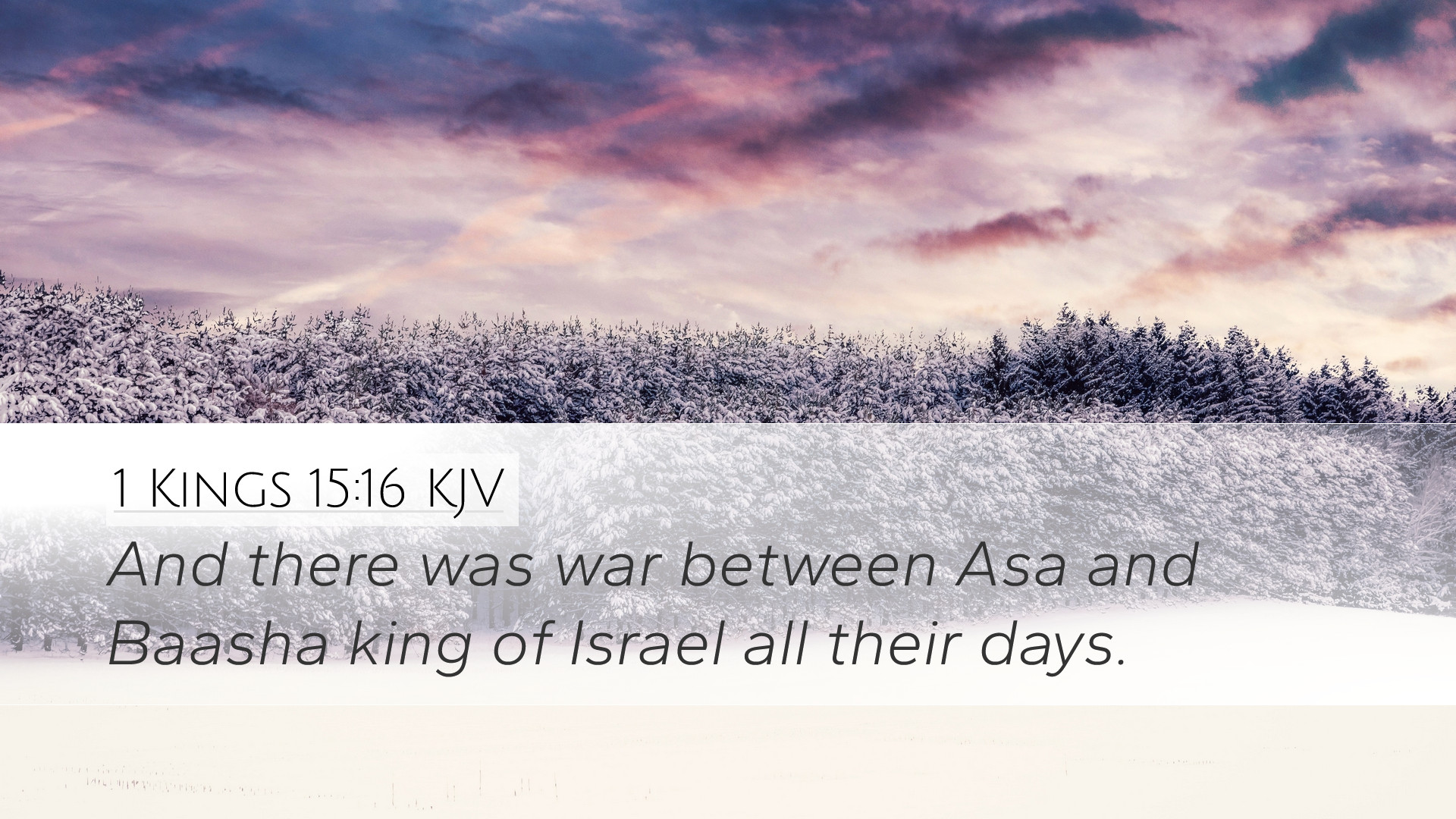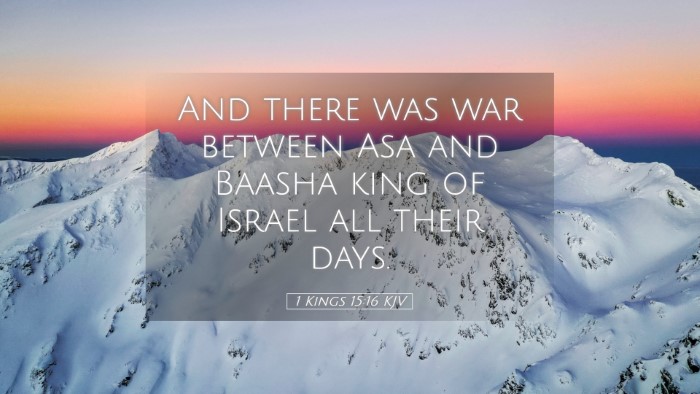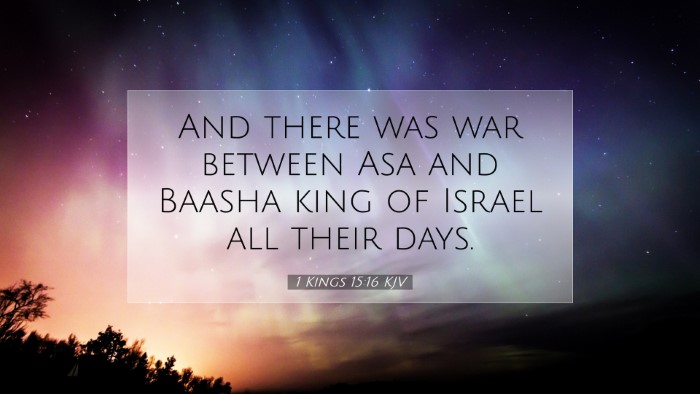Commentary on 1 Kings 15:16
Verse: "And there was war between Asa and Baasha king of Israel all their days."
Introduction
1 Kings 15:16 marks a significant moment in the history of the divided kingdom of Israel. This verse captures the ongoing conflict between Asa, king of Judah, and Baasha, king of Israel. This commentary seeks to explore the implications of this war, the characters involved, and the theological lessons drawn from this narrative by integrating insights from public domain commentaries.
Contextual Background
The wars mentioned in 1 Kings are not merely military engagements; they reflect deeper spiritual battles between fidelity to God and idolatry. Asa, known for his reforms and devotion to Yahweh, represents the southern kingdom of Judah, while Baasha epitomizes the northern kingdom, which often strayed from the worship of the true God.
Insights from Public Domain Commentaries
Matthew Henry's Commentary
Matthew Henry notes that the war between Asa and Baasha symbolizes the enduring conflict between truth and idolatry. He reflects on the nature of Asa's reign, highlighting his endeavors to purge Judah of idolatrous practices. Henry emphasizes that conflict is a common theme in the life of a believer, suggesting that trials can lead to spiritual growth.
- Spiritual Warfare: The war is seen not just as physical but also spiritual, illustrating the struggles faced by those who seek to uphold God’s commandments amidst opposition.
- Divine Providence: Henry reminds readers that God oversaw these conflicts, orchestrating events to fulfill His covenantal promises.
Albert Barnes' Notes
Albert Barnes comments on the political dimensions of the war. He argues that the hostility between the kingdoms stemmed from deeper ideological divides resulting from differing allegiances to God. Baasha’s reign was characterized by idolatry and political machinations as he sought to strengthen Israel's borders at the expense of Judah.
- Political Implications: Barnes highlights how political strife often reflects broader spiritual conditions. The enmity between Judah and Israel serves as a backdrop for exploring the consequences of communal sin.
- God's Judgment: The ongoing warfare is also portrayed as a form of divine discipline upon both kingdoms, reminding believers of the seriousness of leading a life not aligned with God's will.
Adam Clarke's Commentary
Adam Clarke focuses on the historical and cultural significance of the conflict. He identifies Asa's military strategies and divine favor as critical elements in this narrative. Clarke argues that Asa’s obedience to God was instrumental in his victories, contrasting it with Baasha’s reliance on military power without divine guidance.
- Leadership and Faith: Clarke posits that Asa's faithfulness led to God’s intervention in battles, whereas Baasha's idolatry resulted in inevitable failure and downfall.
- Lessons on Governance: The commentaries suggest that leaders must seek divine wisdom to govern effectively; otherwise, their reigns lead to conflict and division.
Theological Reflections
This verse and its commentary offer valuable theological reflections. The relentless conflict between Asa and Baasha serves as a reminder of the spiritual battles that Christians face today. It beckons leaders, theologians, and devout individuals to reflect on their reliance on God in times of uncertainty.
Key Themes
- Persistence of Conflict: The ongoing warfare illustrates the never-ending struggle against sin and unrighteousness.
- Divine Sovereignty: God's hand is evident throughout history, even amidst human conflict and strife.
- Call to Faithfulness: The example set by Asa challenges believers to uphold Godly standards and approach leadership with humility and reliance on God.
Conclusion
In conclusion, 1 Kings 15:16 encapsulates the essence of the spiritual wars faced by the faithful. The insights provided by Matthew Henry, Albert Barnes, and Adam Clarke draw attention to the significance of these conflicts beyond military engagement. They serve as a reminder to encourage faithfulness, prayerful reliance on God, and a keen awareness of the spiritual battles that all believers face in their lives.


